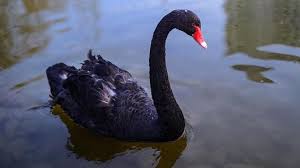|
home | what's new | other sites | contact | about |
||
|
Word Gems exploring self-realization, sacred personhood, and full humanity
The perils of infallibility claims according to Einstein: “No amount of experimentation can ever prove me right;
return to the main-page article on "Bible"
Statements asserting the infallibility of the Bible - or, for that matter, the inerrancy of religious doctrine or church leadership - is built on no granite rock but shifting sands. The Bible may contain many examples of wisdom, but these can never elevate its status to that of perfection. A single error will destroy the illusion, the false labeling of purity. In this series of articles I present dozens examples of biblical deficiency and blemish; I could offer many more - but, only one, one black swan, is needed to falsify the hollow and superstitious claim to infallibility.
Carl Sagan: "In science it often happens that scientists say, 'You know that's a really good argument; my position is mistaken,' and then they would actually change their minds and you never hear that old view from them again. They really do it. It doesn't happen as often as it should, because scientists are human and change is sometimes painful. But it happens every day. I cannot recall the last time something like that happened in politics or religion." Karl Popper: "There can be no ultimate statements in science: there can be no statements in science which cannot be tested, and therefore none which cannot in principle be refuted, by falsifying some of the conclusions which can be deduced from them." Dorothy L. Sayers: “The only ethical principle which has made science possible is that the truth shall be told all the time. If we do not penalize false statements made in error, we open up the way for false statements by intention. And a false statement of fact, made deliberately, is the most serious crime a scientist can commit.” Michael Johnson: “You can believe in whatsoever you like, but the truth remains the truth, no matter how sweet the lie may taste.” Dorothy L. Sayers: “To make a deliberate falsification for personal gain is the last, worst depth to which either scholar or artist can descend in work or life." Karl Popper: "No rational argument will have a rational effect on a man who does not want to adopt a rational attitude." Karl Popper: "It is impossible to speak in such a way that you cannot be misunderstood."
|
||
|
|


